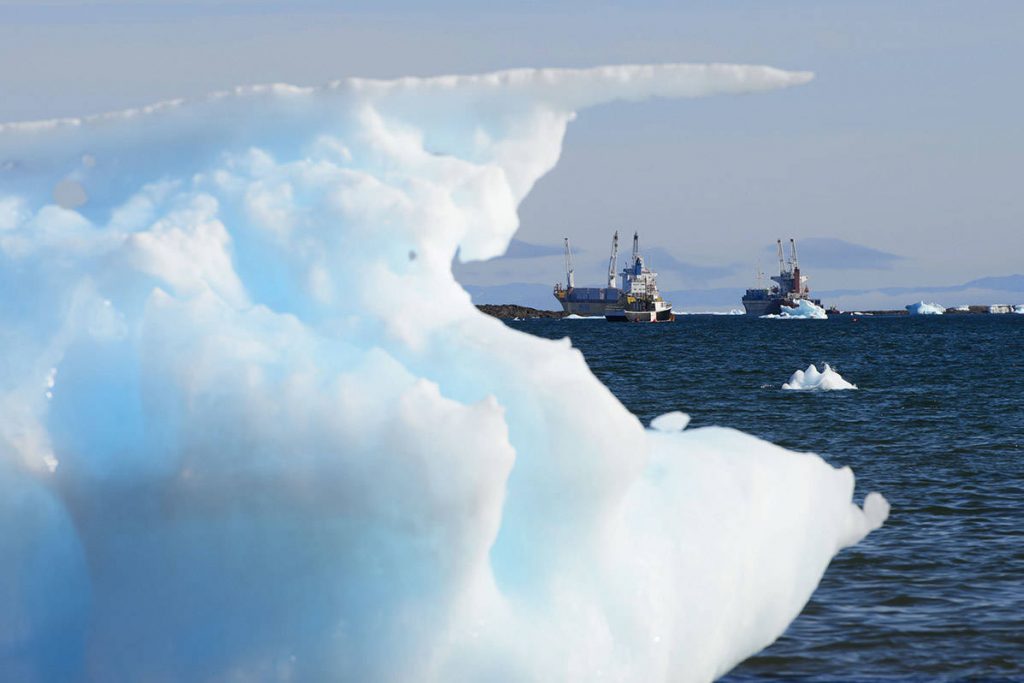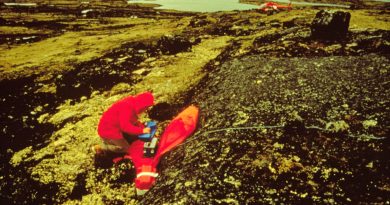Qanittaq Clean Arctic Shipping Initiative gets $91.6 million from Ottawa

A project focused on reducing the environmental impacts of maritime transport will launch with $91.6 million from the federal government to work on sustainable Arctic shipping.
The Qanittaq Clean Arctic Shipping Initiative will be led by Inuit Circumpolar Council (ICC) Canada and Memorial University, located in the Atlantic Canadian province of Newfoundland and Labrador, the two bodies announced on Friday.
The initiative will have three main goals:
- learn about Inuit shipping needs and keep ships safe in the Arctic while protecting the environment.
- develop better and more sustainable ways to operate ships in the Arctic that are also affordable and efficient.
- provide evidence to convince national and international policymakers to change Arctic shipping policies
“We are honoured to partner with Memorial University on this vital research initiative related to Arctic shipping,” ICC Canada President Lisa Koperqualuk said in a statement.
“This comes at a time when there is a huge international focus on Arctic shipping, considering the effects climate change is having on the increase in shipping traffic, and the consequences to the Arctic environment. For Inuit this will be a game changer and help position us to be leaders in this field.”
Responding to shipping concerns in Arctic
The announced money will be paid over seven years through the Canada First Research Excellence Fund (CERF).

“Through a respectful and meaningful partnership with a vast network of collaborators stretching across several countries, Memorial University and ICC Canada are mobilizing a talented team to respond to critical issues facing the Arctic,” said Dr. Neil Bose, president and vice-chancellor pro tempore, Memorial University.
“From the beginning, Memorial has been deeply proud to work side-by-side with ICC Canada, Indigenous partners and collaborators to place Inuit priorities as the key goals of this transformational initiative, while building on our university’s international reputation for cold ocean innovation.”
Shipping Initiative to be based in St. John’s and Ottawa
ICC represents the approximately 180,000 Inuit in Alaska, Canada, Greenland, and Chukotka, Russia, of which ICC Canada is one of the national chapters.
The majority of Inuit communities in the Arctic can only be reached by plane, and during the sea-lift season, by boat.
But as climate change makes the region increasingly accessible, the communities have become concerned about the effects of increased shipping traffic on the environment and animal behaviour. Especially given the lack of emergency and response infrastructure, which is often based hours away in the South.
ICC International has had provisional consultative status at the International Maritime Organization since 2021.
The Qanittaq Clean Arctic Shipping Initiative will be based at the St. John’s Campus of Memorial University and at the Inuit Circumpolar Council Canada office in Ottawa, Ontario.
Write to Eilís Quinn at eilis.quinn(at)cbc.ca
Related stories from around the North:
Canada: Canada comes out in favour of heavy fuel oil ban in Arctic, Eye on the Arctic
Finland: Finland investigates oil leak risks from Baltic Sea shipwrecks, Yle News
Iceland: Iceland to restrict heavy fuel oil use in territorial waters, Eye on the Arctic
Norway: LNG-reloading operations end in Norway’s Arctic waters, The Independent Barents Observer
Russia: Shipping figures rising on Russia’s Northern Sea Route, The Independent Barents Observer
United States: Carnival Corporation ships switch to cleaner fuel on Arctic cruises, Radio Canada International



